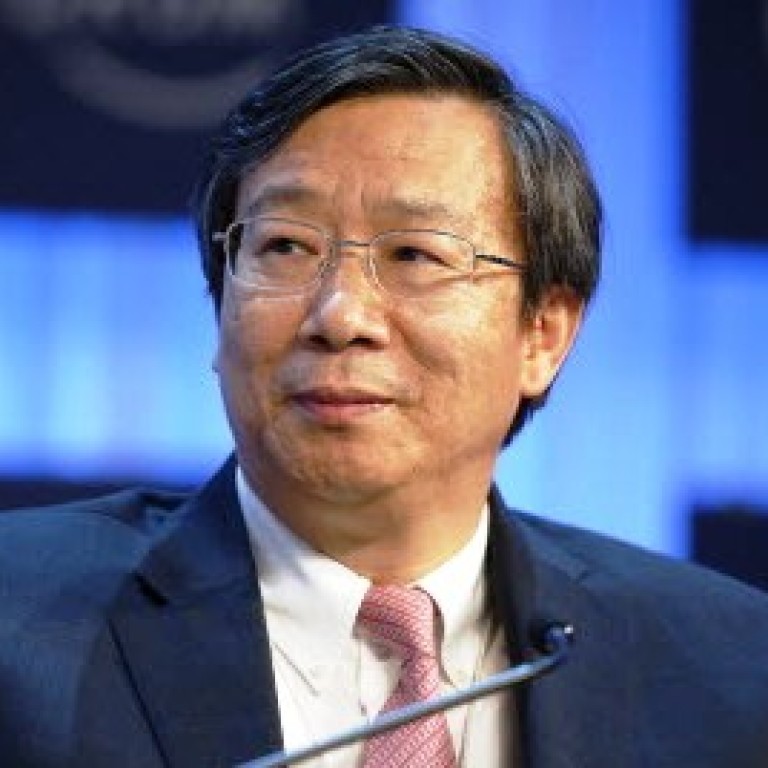
Deputy of China’s central bank says yuan ‘speculators’ should be penalised
China should implement punitive measures such as a so-called Tobin tax to deter currency speculators, central bank deputy governor Yi Gang said.
The steps could include a punitive levy on foreign-exchange trades and the imposition of “handling” fees to counter short-term capital flows that aim for arbitrage, Yi wrote in an article in China Finance magazine, a People’s Bank of China publication. He is revisiting the Tobin tax idea after mentioning it more than a year ago.
His comments suggest the PBOC should take greater control at a time when China is looking to satisfy the International Monetary Fund’s condition that the yuan be more freely usable for it to be admitted into the agency’s Special Drawing Rights basket.
While the nation is opening up its interbank bond and currency markets to foreign central banks, it has taken a series of steps to discourage bets on yuan declines after a surprise devaluation in August triggered the biggest monthly slide since 1994.
“Imposing a tax on foreign-exchange trades sounds contradictory to China’s goal of making the yuan a global currency,” said Daniel Chan, a Hong Kong-based analyst at Brilliant & Bright Investment Consultancy Ltd.
“A tax will increase the cost of transactions even for those doing normal hedging and could divert trades to other markets. The Tobin tax is difficult to implement and I see a low probability it will happen in China.”
Nobel Laureate economist James Tobin first proposed such a levy in 1972 after US President Richard Nixon’s decision to abandon the dollar’s peg to gold pushed up global volatility.
The tax has in the past been rejected by economies from Europe to South Korea because of the risk investors will simply take their business elsewhere.
The PBOC in September asked financial institutions to set aside 20 per cent of yuan forward contract sales in reserve for a year with zero interest, while the State Administration of Foreign Exchange has told banks to conduct special checks on currency trading under capital accounts.
An estimated US$141.7 billion left China in August, exceeding the previous record of US$124.6 billion in July, figures compiled by Bloomberg show.
The onshore yuan, which fell 2.6 per cent in August, advanced 0.3 per cent to 6.3571 a dollar in September amid speculation the PBOC was intervening to support the currency.
The offshore yuan traded in Hong Kong slid a record 3.48 per cent in August and finished September up 1.36 per cent at 6.3591. Chinese financial markets are on holiday from October 1-7 for the National Day “golden week” holidays.
Chinese authorities should continue to improve their monitoring and forecasting abilities for cross-border capital flows, such as by setting up a database, Yi said in the article titled “Direction for the reforms and liberalisation of foreign-exchange management”.
The country should ensure the implementation of cross-border fund sales with Hong Kong as it accelerates yuan capital-account convertibility, he said.

